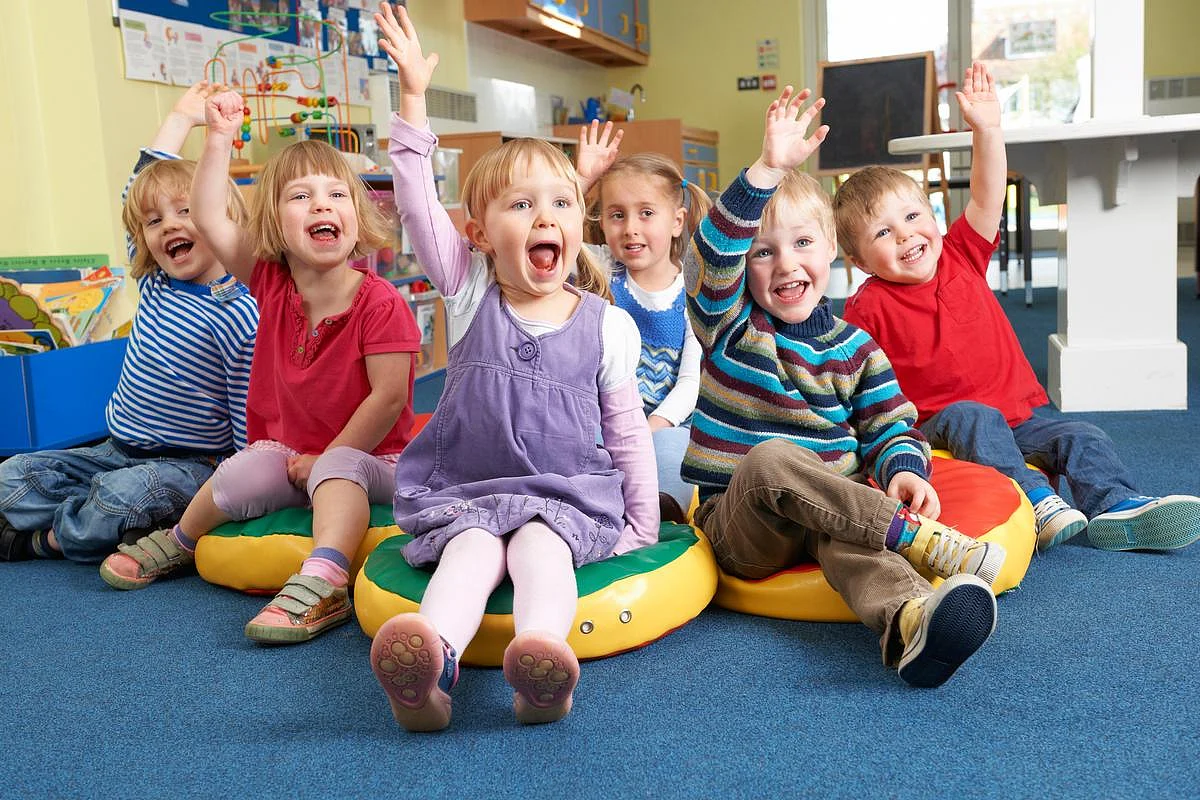Quieter Classrooms May Help Calm Kids, Study Shows
SUNDAY, May 25, 2025 — The first day of preschool can be tough — lots of new faces, unfamiliar sounds and the sudden goodbye to Mom or Dad can be overwhelming. But what if something as simple as the ceiling could make it a little easier?
New research suggests that reducing noise in preschool classrooms can help calm children and improve their ability to talk and listen.
The study — led by Ikuri Matsuoka, a master’s student at Kumamoto University in Japan — investigated how sound-absorbing ceilings affect young children during indoor activities.
The findings were shared Friday at a meeting of the Acoustical Society of America in New Orleans.
“Classrooms without any sound absorption are the majority in Japan,” Matsuoka said in a news release.
“My motivation was to make people aware of the importance of acoustics in classrooms because in Japan, there are no standards or guidelines for acoustic design of preschool and school classrooms,” Matsuoka added.
Many preschoolers are still learning how to speak and understand others, so loud or echo-filled rooms can make communication harder. These stressful environments may lead kids to cry more or talk even louder.
To test the impact of sound design, Matsuoka and their team installed a sound-absorbing material called polyester fiberboard on the ceiling of one classroom. They then compared that classroom to another without any soundproofing.
Using video and audio, Matsuoka tracked how loud the children were and how often they cried. After six months, kids in the classroom without soundproofing were noticeably louder.
Teachers were interviewed four times.
“Three of the four teachers answered that they felt the reverberation had changed," Matusoka said in a news release, "And one of them, a veteran teacher with 25 years of experience, answered that she felt clearly more comfortable talking to the children.”
The study used artificial intelligence (AI) and machine learning tools to help track crying without manually watching every video clip.
“From our research, we hope that those involved in both the child care and architectural fields recognize how important it is to have reduced reverberation that mitigate(s) noisy atmosphere and promote(s) clear verbal communication for children," Matusoka said.
Findings presented at meetings should be considered preliminary until published in a peer-reviewed journal.
Sources
- Acoustical Society of America, news release, May 16, 2025
Disclaimer: Statistical data in medical articles provide general trends and do not pertain to individuals. Individual factors can vary greatly. Always seek personalized medical advice for individual healthcare decisions.
© 2025 HealthDay. All rights reserved.
Read this next
California Votes To Ban PFAS ‘Forever Chemicals’ in Cookware, Other Items
MONDAY, Sept. 15, 2025 — Every time you reach for a nonstick pan, you could be using chemicals that are now on the chopping block in the state of California. Lawmakers have...
Recall: Bariatric Fusion Vitamins Pulled for Missing Child-Safe Caps
MONDAY, Sept. 15, 2025 — About 4,700 bottles of Bariatric Fusion iron-containing multivitamins have been recalled because packaging does not meet federal safety standards...
Ebola Vaccinations Begin in Congo After Deadly Outbreak
MONDAY, Sept. 15, 2025 — Health workers in southern Kasai province have started giving Ebola vaccines as officials race to contain the latest outbreak, the World Health...
More news resources
- FDA Medwatch Drug Alerts
- Daily MedNews
- News for Health Professionals
- New Drug Approvals
- New Drug Applications
- Drug Shortages
- Clinical Trial Results
- Generic Drug Approvals
Subscribe to our newsletter
Whatever your topic of interest, subscribe to our newsletters to get the best of Drugs.com in your inbox.


